How did our species succeed in the battle for dominance Why did our foraging ancestors come together to create cities and kingdoms How did we come to believe in gods nations and human rights to trust money books and laws and to be enslaved by bureaucracy timetables and consumerism And what will our world be like in the millennia to come
Sapiens: A Brief History of Humankind
KShs 595.00
How did our species succeed in the battle for dominance Why did our foraging ancestors come together to create cities and kingdoms How did we come to believe in gods nations and human rights to trust money books and laws and to be enslaved by bureaucracy timetables and consumerism And what will our world be like in the millennia to come
1 in stock
| SKU: | 9780099590088 |
|---|---|
| Categories: | Historical Biographies, History books |
Related products
-
Salamis : The Greatest Naval Battle of the Ancient World,
KShs 795.00“Salamis” tells the story of possibly the greatest naval battle of the ancient world. Involving hundreds of thousands of combatants and well over a thousand triremes – the ranking naval war engine of the time – it was the culminating battle in a twenty-year struggle between the Persian Empire and the Greeks. Against all odds – and with the help of a little treachery, a brilliant strategy and a lucky wind – the Greeks defeated the Persians, and with it began the roll-back of the Persian Empire, and the beginning of the Hellenic imperium. This epic tale is told through the individual stories of twelve characters, six form each side, each of which played a major role in the battle and its aftermath.
-
From the land of Pashtuns to the land of Maa
KShs 2,000.00From the Land of Pashtuns to the Land of Maa: Memoir (2013) Kenyan-born Khan traces his father’s journey from his village in India (now within Pakistan) to Kenya in 1929, alone, at the age of 18 after a family dispute.
Here is the story of migration, of Khan’s father and other Pashtuns (mainly from the Punjab Province of Pakistan), to the Maasai tribal lands in rural Kenya. His father, Juma Khan, raised 18 children from two wives: the first was a Maasai woman who assumed a Muslim name after marriage, and the second was the daughter of a Pakistani father and Maasai mother. It was a time of colonial rule when mixed marriages – and children from them – were regarded with discrimination.
-
The Village of Waiting
KShs 995.00Now restored to print with a new Foreword by Philip Gourevitch and an Afterword by the author, The Village of Waiting is a frank, moving, and vivid account of contemporary life in West Africa. Stationed as a Peace Corps instructor in the village of Lavié (the name means “wait a little more”) in tiny and underdeveloped Togo, George Packer reveals his own schooling at the hands of an unforgettable array of townspeople―peasants, chiefs, charlatans, children, market women, cripples, crazies, and those who, having lost or given up much of their traditional identity and fastened their hopes on “development,” find themselves trapped between the familiar repetitions of rural life and the chafing monotony of waiting for change.
-
Einstein His Life & Universe By: Walter Isaacson
KShs 1,695.00Einstein was a rebel and nonconformist from boyhood days, and these character traits drove both his life and his science. In this narrative, Walter Isaacson explains how his mind worked and the mysteries of the universe that he discovered.
-
History as destiny and history as knowledge
KShs 3,599.00Brief Summary
History as destiny and history as knowledge: being reflections on the problems of historicity and historiography -
The War Within: New perspective on the civil war on Mozambique (African Edition)
KShs 2,000.00The 1976-1992 civil war which opposed the Government of Frelimo and the Renamo guerrillas (among other actors) is a central event in the history of Mozambique. Aiming to open up a new era of studies of the war, this book re-evaluates this period from a number of different local perspectives in an attempt to better understand the history, complexity and multiple dynamics of the armed conflict. Focusing at local level on either a province or a single village, the authors analyse the conflict as a “total social phenomena” involving all elements of society and impacting on every aspect of life across the country. The chapters examine Frelimo and Renamo as well as private, popular and state militias, the Catholic Church, NGOs and traders. Drawing on previously unexamined sources such as local and provincial state archives, religious archives, the guerrilla’s own documentation and interviews, the authors uncoveralternative dimensions of the civil war. The book thus enables a deeper understanding of the conflict and its actors as well as offering an explanatory framework for understanding peacemaking, the nature of contemporary politics,and the current conflict in the country.
Eric Morier-Genoud is a Lecturer in African history at Queen’s University Belfast; Domingos Manuel do Rosário is Lecturer in electoral sociology and electoral governance at Eduardo Mondlane University, Maputo, Mozambique; Michel Cahen is a Senior Researcher at the Centre National de la Recherche Scientifique (CNRS) at Bordeaux Political Studies Institute and at the Casa de Velázquez in Madrid.
-
-
Women, Land and Justice in Tanzania (African Edition)
KShs 2,000.00Recent decades have seen a wave of land law reforms across Africa, in the context of a “land rush” and land-grabbing. But how has this been enacted on the ground and, in particular, how have women experienced this? This book seeksto re-orientate current debates on women’s land rights towards a focus on the law in action. Drawing on the author’s ethnographic research in the Arusha region of Tanzania, it explores how the country’s land law reforms have impacted on women’s legal claims to land. Centring on cases involving women litigants, the book considers the extent to which women are realising their interests in land through land courts and follows the progression of women’s claims to land – from their social origins through processes of dispute resolution to judgment.
Dancer’s work explores three central issues. First, it considers the nature of women’s claims to land in Tanzanian family contexts,the value of land in an era of land reform and the ‘land rush’ across Africa, and the extent to which the social issues raised are addressed by Tanzania’s current laws and legal system. Secondly, it examines how agency and power relations between social and legal actors engaged in legal processes affect women’s access to justice and the progression of claims. Thirdly, it explores Tanzanian concepts of justice and rights and how women’s claims have been judged by land courts in practice.Helen Dancer is a lecturer in Law at the University of Brighton. She practised as a barrister in England specialising in family legal aid cases prior to training as a legal anthropologist. She is also a consultant for Future Agricultures at IDS, University of Sussex. Her areas of research interest include law and development, gender and land, and human rights and legal pluralism.

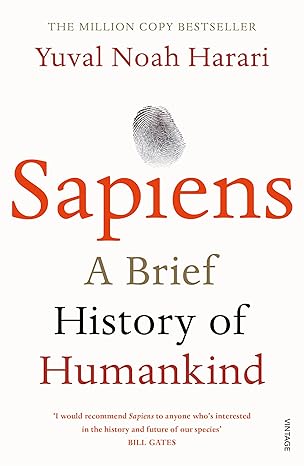

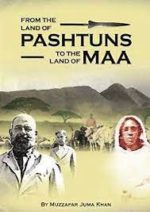
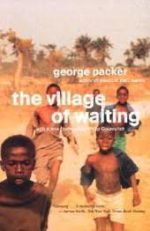



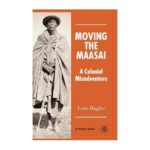
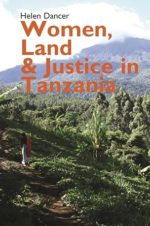
Be the first to review “Sapiens: A Brief History of Humankind”